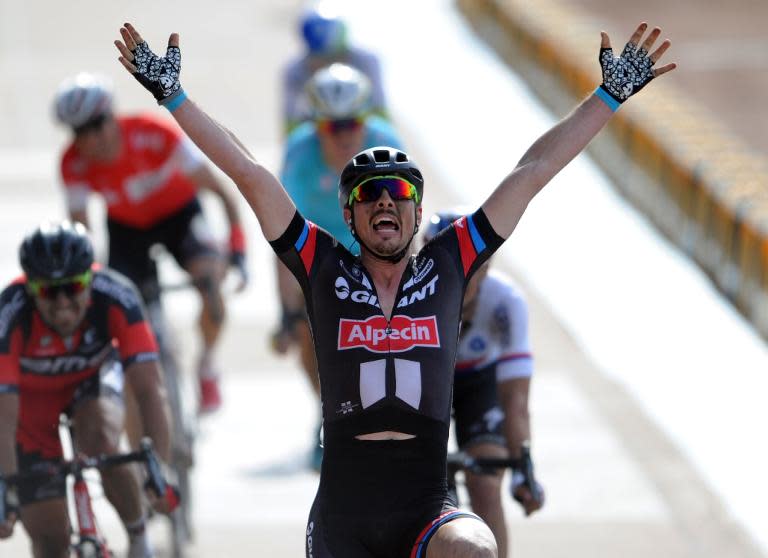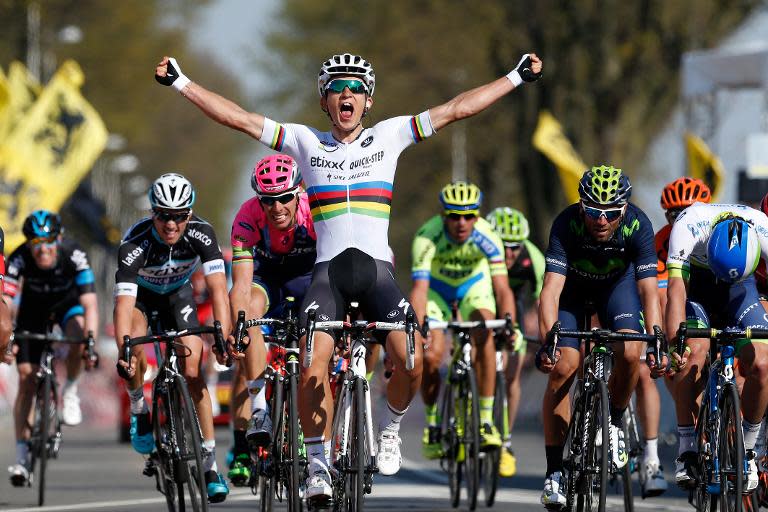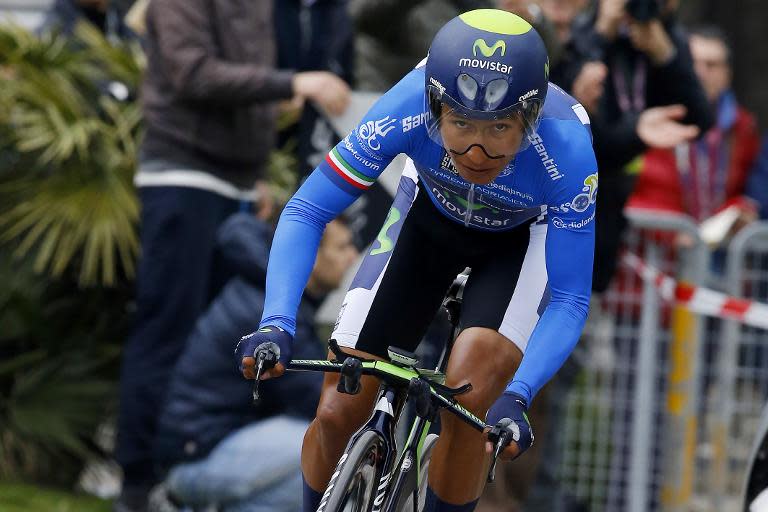Evergreen Valverde bucks youth trend in classics
Spanish veteran Alejandro Valverde may have completed a second Fleche-Wallonne and Liege-Bastogne-Liege double in seven years, but his victories could not mask the sense of a changing of the guard. The Spring Classic season began in March with German John Degenkolb outsprinting Alexander Kristoff to victory in Milan-San Remo. While there was nothing remarkable about that battle between two sprinters in a race oft dominated by the fast men, what came next in April suggested we were witnessing more than just a changing of the seasons. Kristoff won the Tour of Flanders and Degenkolb went one better than his second-placed finish at Paris-Roubaix from last year. Admittedly, the established stars of the cobbled campaign and elder statesmen Fabian Cancellara and Tom Boonen, both 34, were missing through injury, but there was an authority to victories by Kristoff, 27, and Degenkolb, 26, that suggested those absences were irrelevant. The new champions are not out-and-out sprinters in the mould of a Mark Cavendish or Marcel Kittel but rather polyvalent fast finishing strongmen. Both have realised that they can be more than useful sprinters in slightly trickier finishes, perhaps with a slight incline that negates the raw speed of a Cavendish or straight-line power of a Kittel. They are also fully-fledged one-day specialists. It wasn't just their performances that stood out, though, as 21-year-old Tiesj Benoot finished sixth in Flanders while Yves Lampaert, 24, was seventh in Roubaix, where only one of the top 10 was over 30 and half were under 27. - Flourishing youth - Once the cobbled classics gave way to those of the Ardennes, the theme of bristling youth continued as 25-year-old Michal Kwiatkowski took victory at Amstel Gold. Just behind the world champion, though, there was Valverde, who then followed up that near miss by winning both Fleche and Liege. At 35 -- although he was still 34 when he won Fleche -- Valverde's years are numbered in professional cycling, yet he proved a cut above the rest in the Ardennes, appearing unbeatable in the uphill finishes at Huy and Ans. Yet in both he was followed home by 22-year-old Frenchman Julian Alaphilippe, who was supposedly working for his Etixx-Quick Step teammate Kwiatkowski. Although some other veterans earned impressive results, with Joaquim Rodriguez, 34, third at Liege and fourth at Fleche, Michael Albasini, 34, third in Fleche and Dani Moreno, 33, fifth at Fleche, the trend was still one of flourishing youth. Other veterans failed to shine: 32-year-old Philippe Gilbert's best result was a 10th at Amstel, which he has won three times previously, and Australia's Simon Gerrans, 34, didn't even reach the finish line in his defence of the Liege title he won last year -- crashing twice before cutting a forlorn figure slumped on a pavement with his head in his hands around 40km from the end. There was also Romain Bardet, finishing sixth at Liege at just 24 years of age. On the back of his sixth-placed finish at the Tour de France last year, the future looks bright for Bardet, as well as French cycling in general. Thibaut Pinot, also 24, was third at the last Tour. It's not just in the one-day classics -- where experience is vital -- that youth is coming through to replace the old guard. Nairo Quintana is 25 and as well as being Giro d'Italia champion, he will arguably start as favourite in July's Tour. Things are changing in cycling, not just in terms of credibility after a long and sordid history of doping. As the EPO and blood doping generations head off into the sunset, new young stars are being born and taking over the mantle in a more respectable and hopefully glorious era for cycling.






